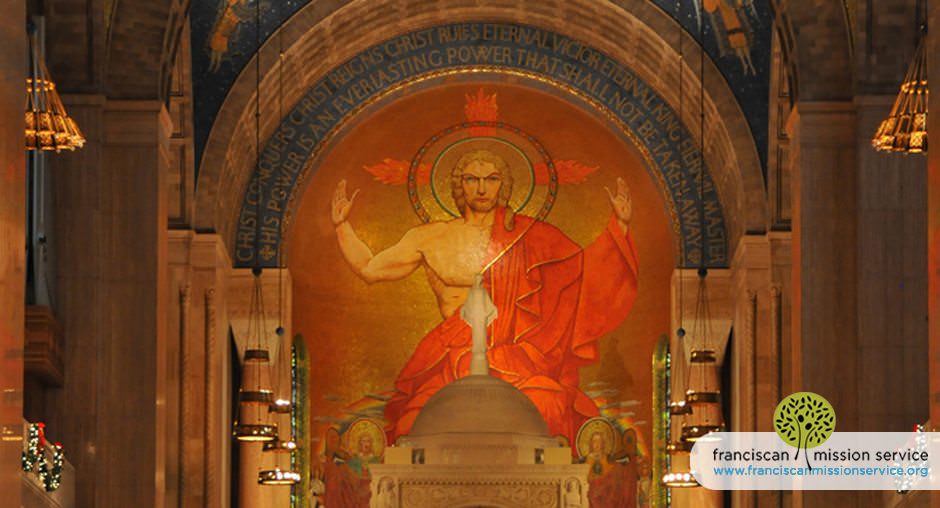Comfortable and Content

Editor’s note: DCSC Volunteer PJ Herrera reflects on the current and future roles of the Catholic Church in people’s lives.
For some time now I have reflected on the general dread that seems to hover over some churches and in the back of the minds of many faithful. This dread can be summed up by the question, “Is our Church dying?” While this pestering thought flows from many sources, a common thread in certain conversations about the future of the Church is the belief that people are just not as interested in religion anymore, seeing it as outdated and of little utility to their lived experience. This has led to a decline in the number of people, especially young people, who attend church regularly. At the same time, our culture seems to reject more and more our fundamental Catholic beliefs.
Now, while any individual person’s loss of faith in God’s presence is a blow to the Body of Christ, these recent trends do not spell the end. I think Pope Emeritus Benedict XVI had something insightful to say about all this in 1969, when he was still Father Ratzinger, and predicted:
From the crisis of today the Church of tomorrow will emerge — a Church that has lost much. She will become small and will have to start afresh more or less from the beginning. She will no longer be able to inhabit many of the edifices she built in prosperity. As the number of her adherents diminishes, so it will lose many of her social privileges. In contrast to an earlier age, it will be seen much more as a voluntary society, entered only by free decision… It will make her poor and cause her to become the Church of the meek.
This recent diminishment in scope, power, prestige, and influence that then-Father Ratzinger predicted is what has scared many of the faithful. It also brings up, yet again, the question of the modern person, “What value does the Church offer the modern world?” Ratzinger goes on to address this:
But I am equally certain about what will remain at the end: not the Church of the political cult, which is dead already, but the Church of faith. It may well no longer be the dominant social power to the extent that she was until recently; but it will enjoy a fresh blossoming and be seen as man’s home, where he will find life and hope beyond death.
And how will we get to this point of “fresh blossoming”? The answer lies in defining our purpose for being, which is stated simply in John 3:16, “For God so loved the world that he sent his only Son, so that everyone who believes in him might not perish but might have eternal life.”
Jesus Christ offers us the most intimate relationship a human being can experience. This love affair, which satisfies the deepest longings of our hearts, is where all those seemingly dated and boring traditions come from. Without knowing and loving Jesus, believing in his message of forgiveness, and hoping for an eternity shared in joy, everything else in the life of the Church ceases to make sense and holds little value, save for its aesthetic appeal.
My short life spent in different communities convinces me that there has been and continues to be a resurgence of young people on fire for our Lord. And again, perhaps I suffer from selection bias, but these same young people do not want to settle for simply going through the motions and acting the part of “Catholic.” Instead, they would rather use their youth to spread the Gospel message that has so impacted them personally.
Whether they are students witnessing to lives of faith on campus, servant leaders offering of their time and treasure, seminarians discerning their call to act as shepherds of God’s flock, young couples inviting the Holy Spirit to work in the world through their love, or missionaries sharing the good news to everyone who will listen, these selfless disciples are the modern Church in love with Jesus. They are his healing hands in a world that has so many wounds and they are his feet as they walk to the margins, sharing his love and mercy. They inspire me each day to hope for a more loving future as I pray that I may learn from their faith-filled “yes” to work for God’s kingdom in our midst.
With this inspiration, dread about the Church’s future is eased and I can ask, in place of “Is our Church dying?”, “In what new ways is our Church going to live?”
Tagged in:
